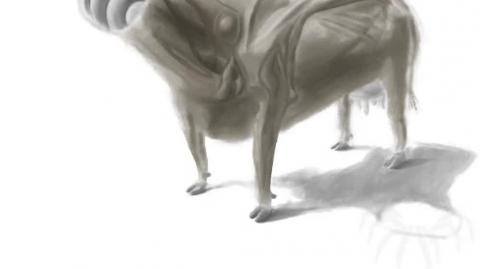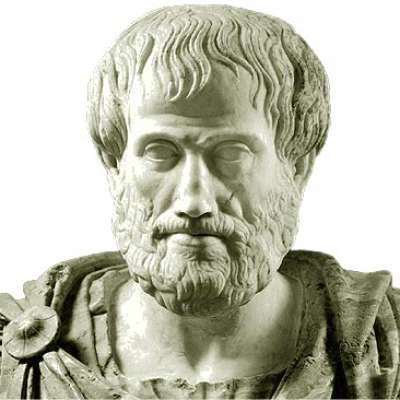On Being A Man - MGTOW
Hey Everybody
Marcus here.
A few videos ago I was asked by a listener to help him understand what it means to be a man. The listener was a younger individual who clearly has been thrown into the whirlpool of confusion brought about by modern Western culture. Though there are plenty of men on the internet offering an account of what it means to be a man, maybe mine is the one this individual needs to hear.
I will attempt to answer this question through a classical interpretation. The answer I give will be the Greek and Roman answer – what it means to be a man as it pertains to antiquity; when men indeed were men. This answer comes from a time of constant war, disease, and general hardship; when pretty much everyone was poor, illiterate, and subsistence living was the order of the day.
So, let us get started.
To be a man means to be manly. To be manly means to possess manliness. Latin was the language of choice in the Roman Empire. The Latin word for manliness is virtus. The root of virtus is vir. Vir means man in Latin. Virtus means, in the literal sense, manliness in English.
However, that is not the translation we use. We use the translation virtue for the Latin word virtus. So, in English, to be manly means to be virtuous. This is how the Romans would define manliness. Now, the Greek word to which virtus corresponds to is Arete. Arete translates in English to excellence. Therefore, in a Greek sense, to be a man is to possess excellence. Excellence and virtue are synonymous in antiquity. To be excellent is to be virtuous, to be virtuous is to be excellent. And this in turn is what it means to be a man. To possess virtue, excellence.
Ok. So, this definition is a little more useful but it still does not drill down far enough to be practical. We need to have some level of clarity as to what excellence and virtue actually mean as these terms were used in antiquity. Before we can do this we need to address a common idea that floats around the internet in relation to being a man. The idea is that to be a man means to be stoic. A stoic, in antiquity was an adherent to the philosophical teachings of Zeno of Citium and the subsequent thought leaders of the stoic school.
To call oneself stoic today tends to refer to a different meaning; namely, a person who can endure pain or hardship without showing feelings or complaining. Though followers of the stoic school tended to manifest the hardiness suggested by the contemporary definition, this contemporary definition is hardly what it meant to be a stoic in antiquity or for that matter, a man.
To have called oneself a stoic in antiquity was similar to calling oneself a Christian or a Mormon today. Though stoicism is not a religion, it is a way of life and thinking.
Now, we do need to situate Stoicism in its proper context because it is so often associated with manliness.
Stoicism was one of the 4 dominant philosophical schools of antiquity. The other three were Platonism, Aristotelianism and Epicureanism. Each school had an associated highest good to which an adherent of the school strived to achieve. In Platonism, it was knowledge of the form of the good itself. In Aristotelianism it was happiness. In Epicureanism it was pleasure. In Stoicism it was virtue itself.
These are all very different goals. The teachings of any given philosophical school put the adherent on the path to achieve it’s ultimate goal. So, there is no conflict in being a man and being a Platonist for example.
To be virtuous is to be manly. And since the Stoic school fundamentally has virtue in itself as its highest good, then in a curious way, Stoicism has manliness as its highest good. So ya, I can very much understand why Stoicism and manliness can be used interchangeably even though I don’t believe its appropriate to refer to oneself as a Stoic if you also do not agree that virtue in itself if the highest good and in persuit of it.
At the same time, I would not call someone a man who merely edures pain or hardship without showing their feelings or complaining. You can be stoic in the contemporary sense and still not be a man by the standars of antiquity. As in, you can be stoic by todays definition and not be a stoic by the standards of antiquity.
All 4 philosophical schools necessitated the pursuit of virtue. As in, all 4 of these schools adhere to the normative ethical model of virtue ethics. So, regardless of which school one would belong to, one is pursuing manliness as part of the practice of the school. Following any of these schools in turn leads to manliness. Therefore, one need not be a stoic to achieve manliness; one must be virtuos.
0



 tarknan
tarknan
 jesuinomgtow
jesuinomgtow
 Sandman
Sandman
 mrghoster
mrghoster

 The Realist Philosopher
The Realist Philosopher
 Despertarmgtow1
Despertarmgtow1

 NerokeFive
NerokeFive





 Stefan Molyneux
Stefan Molyneux
 profhugodegaris
profhugodegaris

 4_ArchAngel
4_ArchAngel



Log in to comment
TO BE X, IS TO POSSESS XNESS, wow!